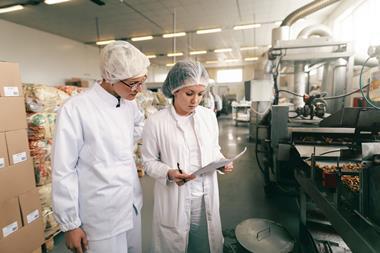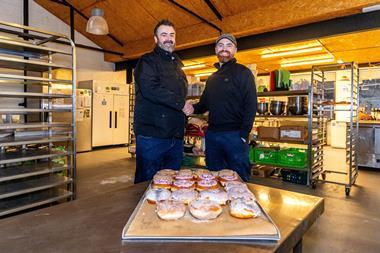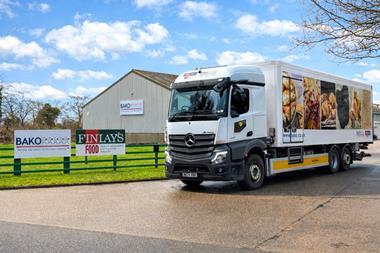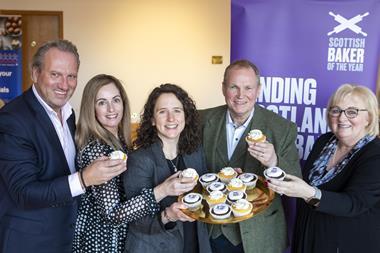
The Craft Bakers Association (CBA) has voiced its concerns over the continued challenges faced by small bakery businesses, which the government’s autumn financial statement failed to address.
Chancellor Jeremy Hunt yesterday (22 November) announced several initiatives aimed at helping high streets and protecting small businesses, described as the ’backbones of communities’. These included a rollover of 75% retail, hospitality and leisure relief for 230,000 properties, and a freeze to the small business multiplier, benefitting around 90% of ratepayers for a fourth consecutive year.
The CBA acknowledged that Hunt’s plans could boost the economy, but believe small businesses will continue to face a myriad of challenges.
“Whilst the CBA welcomes aspects of the Autumn Statement that we recognise may help to boost the economy and help SMEs like craft bakers, the reality is that small businesses will continue to face the same difficulties next year, including high energy costs, rising prices of ingredients and contractual obligations,” said Karen Dear, chief executive of the trade body.
Prior to the statement, the CBA and Cake Box CEO Sukh Chamdal had both called for major reform of the business rate system.
In response, Chamdal said he was happy to see support measures for small businesses but believed it was “largely kicking the can down the road and raises further questions as to why an independent store owner pays more per square footage than a nationwide supermarket?”
“The Chancellor missed the chance to guarantee support for high street retailers over the long-term. The current regime simply allows local business rates to be increased further in the future and, without major reform, this broken system will forever hold back our high-streets and subdue the vibrant community of shop-owners that make them what they are,” Chamdal added.
Other policies announced included tougher regulation on late payers to help improve prompt payments for small business, expansion of the Made Smarter scheme for UK manufacturers, and continued funding for leadership course Help to Grow. Additionally, the existing R&D Expenditure Credit and R&D SME Scheme are to be merged from April 2024, simplifying the system and boosting innovation in the UK.
From 1 April 2024, the National Living Wage (NLW) is to be increased by 9.8% to £11.44 per hour for eligible workers, covering 21- and 22-year-olds for the first time. The government said this represents an increase of over £1,800 to the annual earnings of a full-time worker on the NLW and is expected to benefit over 2.7 million low-paid workers. National Minimum Wage rates are also being substantially raised – up by 14.8% to £8.60 an hour for people aged 18-20, and up by 21.2% to £6.40 an hour for 16- and 17-year-olds and apprentices.
“While we appreciate why the minimum wage has been increased and the benefit this has, this too will pose another significant economic challenge for many small businesses like bakers,” commented Dear. “We would therefore urge the government to consider the impact of their policies on all sectors, including craft bakers.”
Confidence to invest
The Federation of Bakers (FOB), meanwhile, said it welcomed the Autumn Statement announcements set to boost the economy and support investment at large-scale bakery businesses. Of particular interest was the move to make so-called Full Expensing permanent, allowing businesses to offset investment in items such as new IT equipment and factory machinery against tax (for every pound invested, taxes are cut by 25p).
“Full expensing capital allowance provides confidence for members to invest – to be able to innovate and grow, whilst delivering against net zero targets,” commented FOB chief executive Andrew Pyne.
“The baking industry is one of the largest sectors in food and drink manufacturing industry, and it’s critical there is continued investment in large scale bakeries which produces most of the UK’s bread,” Pyne added.
The government is also to extend its Climate Change Agreement Scheme (CCAS), giving energy-intensive businesses around £300 million of tax relief every year until 2033 as they make investments to reduce energy consumption and carbon emissions in operations. Pyne said the FOB would welcome more clarity on how the baking industry can access the CCAS investment to support transition to greater energy efficiency in support of net zero targets.
































No comments yet